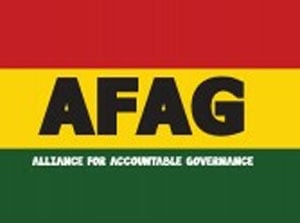Dr. Mahamudu Bawumia’s recent public apology for the shortcomings of the New Patriotic Party (NPP) government during its time in power represents a significant departure from the norm in Ghanaian politics, where accountability and apologies are often eschewed in favor of denial and defensiveness. This act, far from being a display of weakness, is a shrewd political maneuver with multiple layers of potential benefit for both the NPP and the broader political landscape of Ghana. The apology disrupts the established pattern of arrogance and impunity, offering a refreshing acknowledgment of the government’s missteps and demonstrating respect for the Ghanaian people’s intelligence and lived experiences.
The impact of Bawumia’s apology resonates deeply within the NPP itself. The party’s grassroots supporters, who often bear the brunt of public frustration with government policies, have felt unheard and overlooked. Bawumia’s acknowledgment of the hardships they faced and the implicit admission that the party’s leadership failed them serves as a crucial first step in rebuilding trust and morale within the NPP. By validating the concerns and experiences of the party faithful, Bawumia’s apology opens the door for reconciliation and renewed commitment to the party’s core values and objectives. This internal healing is essential for the NPP to regain its footing and effectively mobilize its base for future electoral contests.
Beyond the internal dynamics of the NPP, Bawumia’s apology has implications for the broader electorate, particularly the crucial bloc of floating voters who often determine the outcome of elections in Ghana. These voters, disillusioned by the NPP’s performance and unfulfilled promises, sought accountability and a demonstration of genuine remorse. Bawumia’s apology directly addresses this demand, signaling a willingness to learn from past mistakes and chart a new course. By acknowledging the legitimacy of voter concerns, the NPP opens the door for regaining credibility and trust among those who abandoned the party in previous elections. This strategic move positions the NPP to recapture lost ground and potentially sway these pivotal voters in future elections.
Bawumia’s apology also serves to reshape the political narrative surrounding the NPP. For some time, the party has been trapped in a narrative of failure and broken promises, often framed by its political opponents. This apology disrupts that narrative by demonstrating a willingness to confront past mistakes head-on, rather than evade responsibility. This shift allows the NPP to reclaim some control over its public image and reposition itself as a party capable of self-reflection and reform. By acknowledging past shortcomings, the NPP can begin to build a new narrative centered on lessons learned and a commitment to a more effective and responsive government in the future.
Looking ahead, Bawumia’s apology is a strategic investment in the NPP’s future. It demonstrates humility and a willingness to change, qualities that resonate with voters who are often more forgiving of leaders who admit their mistakes. By acknowledging past errors, Bawumia creates space for the NPP to articulate a renewed vision for the future, grounded in the lessons learned from past experiences. This apology provides a foundation for rebuilding trust with the electorate and demonstrating a genuine commitment to serving the needs of the Ghanaian people. It allows the NPP to present itself not as a party in denial but as a party ready to embrace change and learn from its past.
Furthermore, the act of apologizing itself sets a valuable precedent in Ghanaian politics. In a context where apologies are rare, Bawumia’s action serves as a powerful example of political courage and a commitment to accountability. It challenges the prevailing culture of arrogance and impunity and encourages other political leaders to embrace a more transparent and accountable approach to governance. This shift towards greater accountability can contribute to a healthier and more robust democracy in Ghana, where leaders are held responsible for their actions and are willing to admit and learn from their mistakes. Bawumia’s apology is not just a strategic move for the NPP; it is a potentially transformative moment for Ghanaian politics, demonstrating the power of humility and accountability in fostering trust and strengthening democratic processes. It remains to be seen whether this act will genuinely translate into tangible changes in the NPP’s governance and policies, but it undeniably represents a significant departure from the status quo and offers a glimmer of hope for a more accountable and responsive political culture in Ghana.














